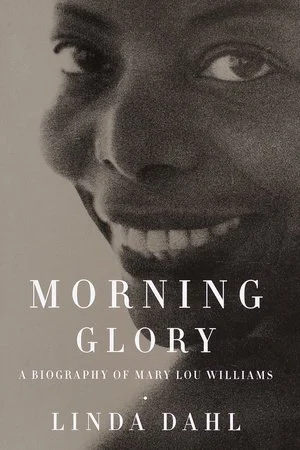A New York Times Notable Book of the Year (2000)
Finalist for ARSC Award for Best Research in Recorded Jazz, Blues or Gospel (1999)
Mary Lou Williams - pianist, arranger, composer, and probably the most influential woman in the history of jazz - receives the attention she has long deserved in the definitive biography by a leading scholar of women in jazz.
The illegitimate child of an impoverished and indifferent mother, Williams began performing publicly at the age of seven when she became known admiringly in her native Pittsburgh as "the little piano girl of East Liberty," playing one day for the Mellons at bridge teas and the next in gambling dens where the hat was passed for change. She grew up with the jazz of the early part of the century, championed by the likes of Earl Hines and Fats Waller, yet unlike so many other musicians of her time, she was open to new forms in jazz - she was an early champion of bop, and a mentor and colleague to its central figures, such as Thelonius Monk and Bud Powell - and in broader musical styles as well (after her conversion to Catholicism, she wrote masses and other sacred music).
Most of the other famous women in jazz (Billie Holiday, Ella Fitzgerald) have been singers. Williams was instead a phenomenal pianist who performed solo, with small groups and big bands, in vaudeville and clubs, and on numerous records. But she is equally well known today as a composer and arranger of remarkable versatility and power, having worked with, among others, Duke Ellington and Benny Goodman. Her compositions have been recorded by artists as varied as Marian McPartland, Dizzy Gillespie, Nat "King" Cole, Sarah Vaughan, Ella Fitzgerald, and herself - and, more recently, by cutting-edge players Geri Allen, Dave Douglas, and Aaron Diehl.
But Williams was more than “just a musician"; her interests were catholic in both senses, and she struggled to combine her love of music with her love of God. She was a tireless humanitarian, and made ongoing attempts to help dozens of down-and-out musicians; in the 1950’s, her apartment was, at times, virtually a rehab. Though she was often in emotional despair, she found comfort for her many disappointments and hurts not only in her music but in her spirituality.
Linda Dahl, granted unprecedented access to the large Williams archive, has given us the whole of Williams's very full life, from her often harrowing days on the road to her tumultuous marriages and love affairs, from the ups and downs of her unique fifty-year career to the remarkable spirituality that came to inform both her daily life and her music. This is a striking portrait of one of our least understood and most important musicians.
“A stunning character in search of an author, Williams has found her writing soul mate in Linda Dahl, and the engrossing result is Morning Glory ...”
— Gene Santoro, The New York Times Book Review
“A must-read biography of the incomparable Mary Lou Williams…I am forever grateful to Linda Dahl for giving Williams back to us in this new book.”
— Sojourner Lester
“Dahl's impressive biography presents a thorough and fascinating portrait of the little known jazz legend Mary Lou Williams. A must-read for all jazz lovers, especially those interested in women's unsung contributions to jazz.”
—Maria Bonito, Amazon.com
“This is a magnificent biography of a towering, yet still underrated figure in jazz. Mary Lou Williams lived and played through much of the history of jazz, and created music of the highest quality throughout her career. Dahl's book is worthy of its subject; it's well-researched, readable, and gives a real sense of Ms. Williams' personality, and of the circumstances of her life.”
—Jeff Crompton, Goodreads
